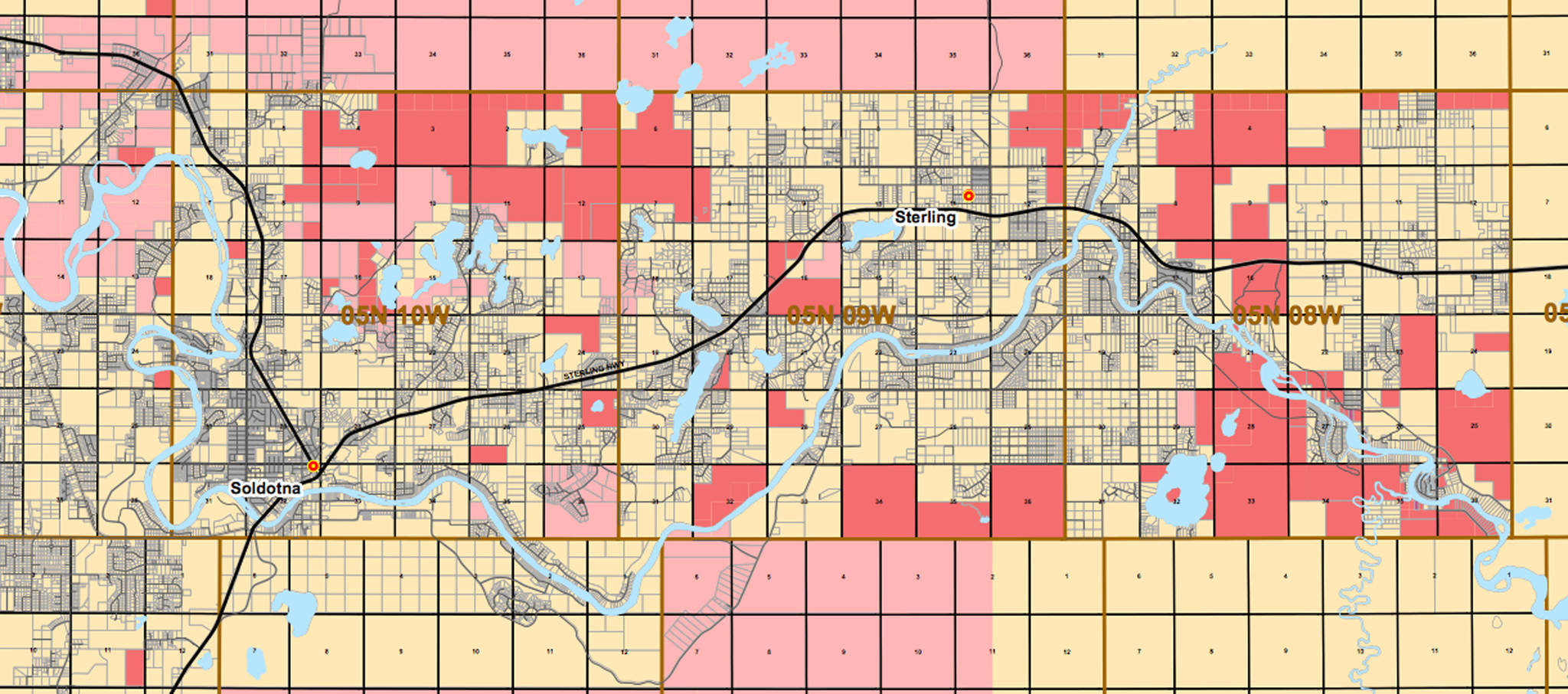Kenai River anglers will have to keep an eye out for private property this year as Cook Inlet Region Incorporated steps up its efforts to protect its riverfront lands from damage.
Cook Inlet Region Inc., the Alaska Native corporation that represents 8,800 shareholders and owns approximately 1.3 million acres of land scattered around Southcentral Alaska, is a major landowner along the Kenai River. The corporation’s lands there, all of which are undeveloped, make up approximately 7–8 percent of the riverfront property between the mouth and the border with the Kenai National Wildlife Refuge.
In recent years, corporation staff members have noticed a lot of habitat damage on the properties, and this year is stepping up enforcement to protect those lands, said Corporate Communications Director Jason Moore.
“(People are) dumping trash, cutting down wood, hurting the streambank, damaging the habitat … there’s a host of issues there that people just aren’t treating the property with much respect,” he said. “This is private property just like any other private property.”
Some of the areas exhibited fairly significant damage late last year, with trees cut down for firewood and weeds cut back from the bank or trampled. Corporation staff members have noticed the damage before but it has worsened, with some people spotting extensive camping and treecutting, Moore said.
There are several reasons the corporation wants to restrict access and damage to the land, one of which is liability for injury or accidents on private land, Moore said.
“Liability is a big issue, and most of the use is along the streambank,” he said. “That’s where we’re seeing much of the damage, if you will, and I think that’s when you look at the habitat problems, that’s the most risky areas for that damage too.”
Signs have gone up on CIRI’s lands to let people know that it is private property, Moore said. Though staff members won’t perform regular patrols, they’ll check in periodically and will call the troopers to enforce laws against trespassing if necessary.
One group the corporation will rely on to spot any abuse is the fishing guides, Moore said. Guides have dropped clients off on the banks in the past, and the corporation asked for them to keep an eye out for damage to the land.
The enforcement doesn’t mean private individuals can’t use the land at all — they just have to get a permit first. CIRI has a land permit available for recreational users for free through its website, which is open to everyone. Commercial users, including guides, can obtain commercial permits. Access is based on dates and users are asked to respect the corporation’s land use policies, according to its website.
Much of the land along the Kenai River is privately owned. Some sections of the river are divided up into dozens of small parcels, all with a small stretch of riverfront, where anglers and guides cannot fish or land boats without permission. The state and borough own some properties that allow for public access, such as the Donald E. Gilman River Center on Funny River Road. Moore said people may confuse CIRI land for public land because it is undeveloped, but the corporation hopes the signs will help make that clearer.
“Enforcement is not going to be easy, but I think a lot of this is the users probably don’t know what the land patterns are, the ownership patterns,” he said. “We’re hoping the signage could let them know that it’s not public land, it’s private land. I think most of the users out there are responsible and want to follow the rules.”
Reach Elizabeth Earl at elizabeth.earl@peninsulaclarion.com.

